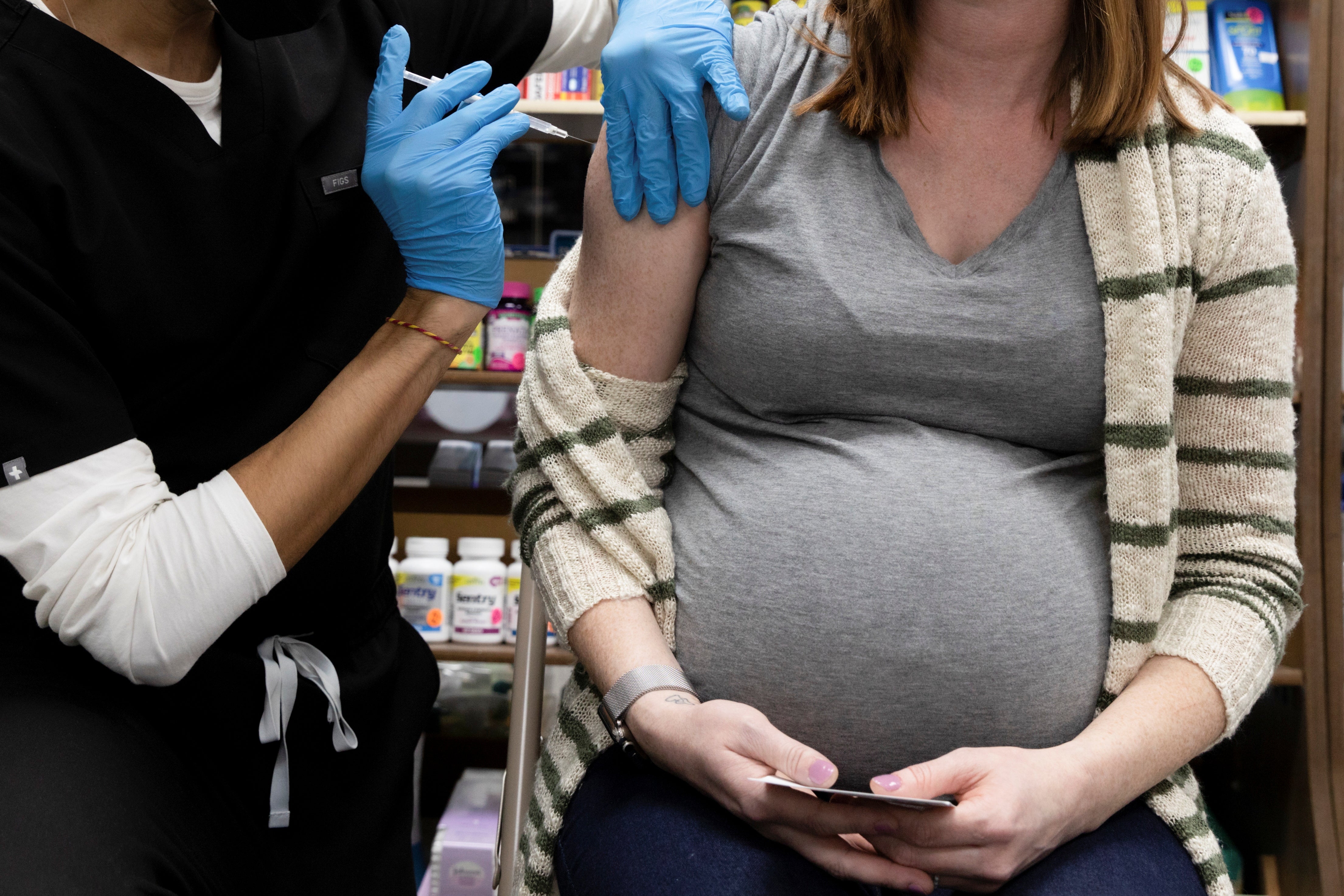Pregnant women with Covid 50% more likely to face severe complications, study finds
Research findings strengthen case for vaccinating pregnant women, scientists say

Your support helps us to tell the story
From reproductive rights to climate change to Big Tech, The Independent is on the ground when the story is developing. Whether it's investigating the financials of Elon Musk's pro-Trump PAC or producing our latest documentary, 'The A Word', which shines a light on the American women fighting for reproductive rights, we know how important it is to parse out the facts from the messaging.
At such a critical moment in US history, we need reporters on the ground. Your donation allows us to keep sending journalists to speak to both sides of the story.
The Independent is trusted by Americans across the entire political spectrum. And unlike many other quality news outlets, we choose not to lock Americans out of our reporting and analysis with paywalls. We believe quality journalism should be available to everyone, paid for by those who can afford it.
Your support makes all the difference.Pregnant women who catch Covid-19 are over 50 per cent more likely to experience severe complications such as premature birth, admission to intensive care and death, a major study has found.
Newborns of infected women were also nearly three times more at risk of severe medical complications and close to 10 per cent tested positive during the first few days of their life, the study of more than 2,100 pregnant women across 18 countries worldwide revealed.
Scientists leading the study warned the risk to mothers and babies is greater than acknowledged at the beginning of the pandemic, and called for pregnant women to be offered a Covid-19 vaccine.
Stephen Kennedy, a professor of reproductive medicine at the University of Oxford, who co-led the study, said: “We now know that the risks to mothers and babies are greater than we assumed at the start of the pandemic and that known health measures when implemented must include pregnant women.
“The information should help families, as the need to do all one can to avoid becoming infected is now clear.
“It also strengthens the case for offering vaccination to all pregnant women.”
There is no evidence to suggest the coronavirus vaccines are unsafe during pregnancy, the Joint Committee on Vaccination and Immunisation said last week.
The independent expert advisory committee said pregnant women should be offered the Pfizer-BioNTech or Moderna vaccines at the same time as the rest of the population, based on their age and clinical risk.
The preliminary results of a separate report of 35,000 women in the United States who received either the Moderna or Pfizer shots while pregnant showed their rates of miscarriage, premature births and other complications were comparable to those observed in published reports on pregnant women before the pandemic.
The new global Intercovid study was unique because each woman affected by Covid-19 was compared with two non-infected pregnant women giving birth at the same time in the same hospital.
The research also found the risks to pregnant women who caught Covid-19 but were asymptomatic were similar to women who did not have the virus.
Breastfeeding did not appear to be related to newborns of infected mothers catching Covid.
But delivery by caesarean section “may be associated with an increased risk of having an infected newborn,” José Villar, a professor of perinatal medicine at the University of Oxford, who co-led the study, said.
Examining the long-term effects on mothers and children was the next challenge, the scientists said.
Join our commenting forum
Join thought-provoking conversations, follow other Independent readers and see their replies
Comments